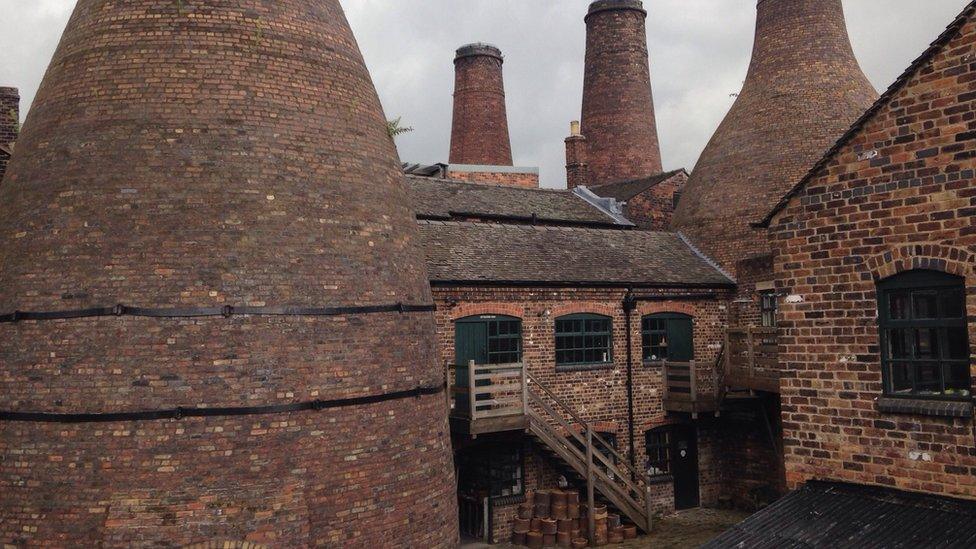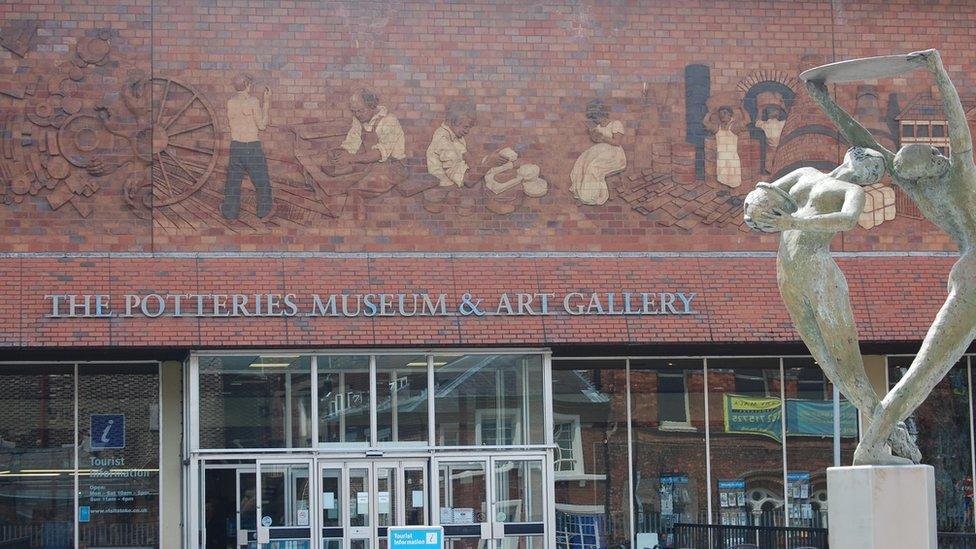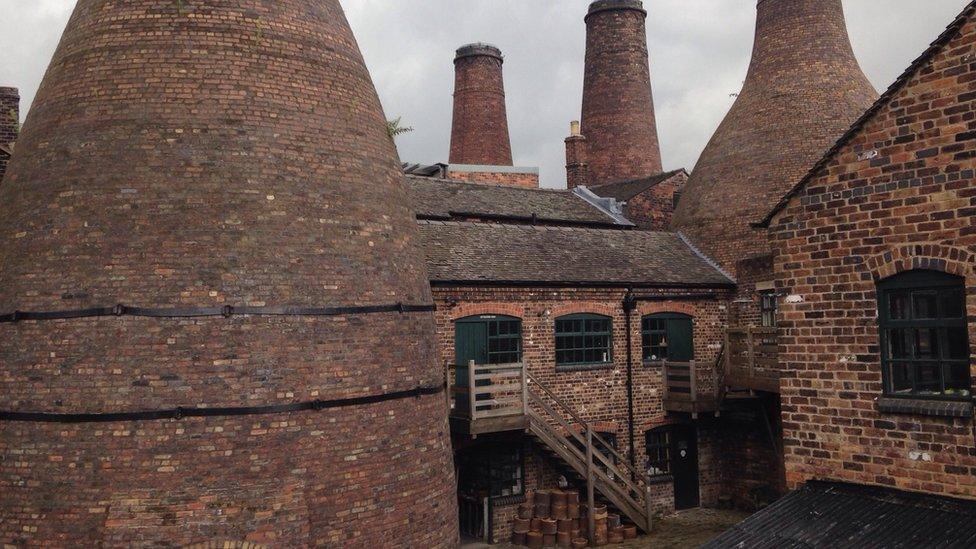Thousands join call to prevent Stoke-on-Trent museum's closure
- Published

Gladstone Pottery Museum has been the backdrop to film and TV programmes including The Great Pottery Throw Down and biopic The Colour Room
Thousands of people have signed a petition calling for a council to rethink plans to close a museum for five months every year.
The Grade II* listed Gladstone Pottery Museum in Stoke-on-Trent could be closed for filming as part of council budget plans to save £10m.
Money saving measures could also see 19 full time posts cut and open days reduced at the city's Potteries Museum.
Campaigners called for the "appalling" proposals to be "thrown out".
There were about 150 factories at any one time during the 19th Century.
Council leader Abi Brown said the museums "do not get the footfall to keep them open seven days a week". The council's budget plans want to see savings from its museums service of £560,000.

The plans would also see the Potteries Museum and Art Gallery only open for five days each week
Under the proposals, Gladstone would only be open to the public and schools from April to October each year, with the site marketed for "filming and events" for the rest of the year.
The venue is the current base for Channel 4's The Great Pottery Throw Down and was used to film scenes from Sky's The Colour Room, a film biopic in 2021 of British ceramic artist Clarice Cliff.
"We regret any reduction in opening hours, but we could live with the reduction in the Potteries from seven days to five," Peter Wilson, chair of the Friends of the Potteries Museum group, said.
"For Gladstone to close for five months we think is totally unacceptable. We really find the plans appalling."
A public consultation on the proposals is running until 14 February, however since the announcement almost 20,000 people have signed a petition calling for a rethink.
Stoke-on-Trent has historically been known for its pottery industry with about 150 factories at any one time during the 19th Century. This has declined over the years although several manufacturers remain.

Follow BBC West Midlands on Facebook, external, Twitter, external and Instagram, external. Send your story ideas to: newsonline.westmidlands@bbc.co.uk, external
Related topics
- Published8 January 2022

- Published4 January 2022
